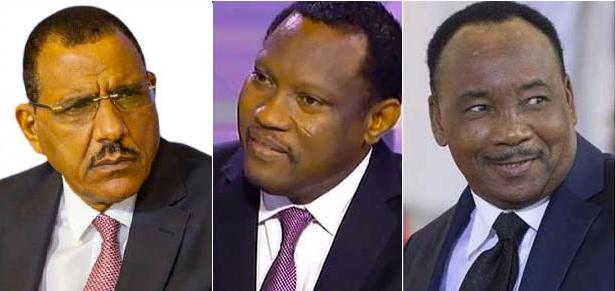Sahel’s surprisingly large artisanal gold mining sector
Published on Thursday 6 December 2018 Back to articles
The combined backdrop of the post-9/11 global war on terror (GWOT), post 2011 Qadhafi crisis, northern crisis in Mali, and current Sahel War have all combined to destroy livelihoods of most of the Sahel’s local population. The tourism industry, in particular, has been decimated. The result is that many people have resorted to criminal or quasi-criminal activities, such as the trafficking of drugs, arms, and people, as well as banditry.

In value terms, the largest of these — besides cocaine trafficking which is in a relatively small number of hands — is artisanal gold mining. Over the last four-five years, almost every country in the region has experienced at least one major gold rush.
In the Sahara, the first main gold rush began in Niger’s north eastern Djado region around 2014. Since then, similar gold rushes have been experienced in:
- the Tibesti region of northern Chad;
- the Arlit-Assamaka region of northern Niger;
- the Tasiast area of north western Mauritania;
- the Kidal region of northern Mali;
- at Tchibarakaten in the northern part of Niger’s Ténéré desert close to the Algerian border; and the most recent being
- in the Miska region of the northern Tibesti in Chad (see below).
Statistics on the quantity of artisanal gold being mined in the region and how many people are being employed through such operations are largely estimates.
West Africa has always been one of the world’s major gold-producing regions. It was the basis of the vast wealth of the Mali Empire (1230-1670), with King/Sultan Musa Keita (1280-1337) reputedly being the richest man in history with an estimated wealth of some US$400 billion at current values. The Ashanti Empire (1670-1957) of modern Ghana was also founded on its wealth in gold. Today, Ghana is Africa’s second largest gold producer, followed by Mali and Sudan. Niger, Mauritania, Côte d’Ivoire and other countries in the region all have major industrial gold-mining operations that contribute a large proportion of national revenues.
However, in the last few years, gold panning and artisanal mining, which are often clandestine and illegal but possibly worth billions of dollars, have rapidly gained momentum.
Apart from the fact that much of the gold is smuggled out of these regions with little or no revenue going to the respective governments, they are also ridden with: corruption; misrepresentation; money laundering; child labour; prostitution; sexual violence; and forced labour.
Select the link here to receive your free version of Sahara Focus



